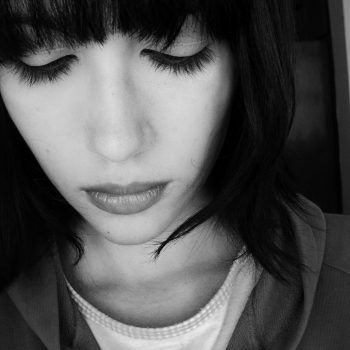One of the sad realities of the strong and loving bonds we have with friends and family is that we will all experience the feelings of grief when they pass away. The loss of a parent, friend, spouse or even a pet can create a sense of anguish and depression that can last months or even years. While we often think of grief as arising when someone dies, this complicated emotion can also emerge after a divorce, the loss of a job,
Dealing with grief has always been a part of the human condition, and countless poets, musicians and artists have struggled to express their own loss and pain. For the average person, the grieving process can feel like it will never end. Thankfully, there are many resources out there that can help you in your time of grief.
What Is Grief?
There is no easy definition for grief, as it means very different things to different people. Generally speaking, grief is a multidimensional and complex response to a loss. The loss is usually of a loved person or pet that has died, but it can also be in response to the loss of a job, relationship or other important bond. While people tend to think of grief as solely an emotional experience, it has many other facets. These can include behavioural, physical, social, and spiritual affects on an individual.
Is Bereavement the Same Thing as Grief?
Grief often refers to the emotional and physical state that one undergoes after a period of immense and profound loss. The term bereavement, however, refers to the temporal period during which this mourning takes place. We tend to refer to the ‘bereavement period,’ during which time a person experiences acute grief.
What Are The Symptoms Of Grieving?
Each person goes through the grief process in their own way, and they can find themselves experiencing all of these symptoms, or none that are listed.
Emotional
When someone is grieving, they tend to display at least a few of the emotional symptoms listed below. These symptoms can come and go, and tend to lessen over time. They can arise again around the times of important anniversaries, birthdays and other holidays.
- A state of ‘numbness’ or an inability to feel anything
- Crying jags
- Increased irritability with others
- Bitterness, anger and rage
- Detaching from those around you
- Becoming preoccupied with the loss
- An inability to feel happiness, joy or calm
- Anxiety about minor issues
These are all completely normal reactions to a loss, and a person experiencing them should never be judged or made to ‘hurry up’ with the process.
Physical
Grief is so much more than mental pain and suffering – it can also wreak havoc on your physical health. Some of the most common physical symptoms of grief include:
- Digestive issues – diarrhoea, constipation, upset stomach
- Extreme fatigue
- Headaches, ranging from mild to severe
- Sore muscles
- Nerve pain throughout the body
- Pains in the chest or shoulders
While these symptoms are normal, if they progress into severe pain you should always contact your GP, or the out of hours service.
What Is The Grieving Process?
It is always important to note that there is no ‘one’ grieving process. Everybody experiences grief differently, but there is a common model that has found popularity over the past 50 years.
The 5 Stages of Grief (also called the Kubler-Ross model) is a concept that was introduced in 1969 by Swiss-American psychiatrist Elisabeth Kübler-Ross. It is still one of the most popular models used today, and can help many people understand what they are going through and why. Not everyone progresses through these stages at the same rate, and some people go up and down the ladder before eventually settling on acceptance.
These are the 5 Stages of Grief:
- Denial – Most people experience an initial period of denial. You might believe that there has been a mistake, that a diagnosis is wrong, or that there is somehow a way that the tragedy is not happening.
- Anger – Next, once a person can no longer deny what is happening, people often feel a state of frustration, anger, even rage. It is common to look for someone to blame, and lash out at the potential perpetrator.
- Bargaining – At this stage, an individual tries to bargain for a better outcome. This stage is most common after a diagnosis of a terminal disease.
- Depression – This stage can last the longest, and can come and go. Depression takes over, and a person can start to feel despair, and like there is no point in continuing on with their life.
- Acceptance – Finally, a person will make it to a state of acceptance. They come to an understanding of the circumstances, and they begin to forge a path forward.
What Are The Different Types Of Grief Disorders?
While grief affects each person differently (and we all experience the bereavement period at our own pace), some people find that their grief has progressed to an unmanageable level. Some common grief disorders include prolonger grief disorder, and complicated grief disorder.
Prolonged Grief Disorder
Prolonged grief disorder is classified as severe grief that impairs an individual for more than 6 months after the traumatic event. This disorder occurs quite frequently, and affects some people much more often than others. Prolonged grief disorder affects some people (those with a family history of the issue) more frequently than others. This disorder tends to affect women more often than men, but it can be found across all genders, income levels, ethnicities and religions.
Complicated Grief Disorder
Complicated grief disorder and prolonged grief disorder share many things in common, but the hallmark of CGD is that the individual is at the same level of trauma and pain more than 6 months after the event in question. The ‘normal’ process (wherein grief starts to fade and progress through stages) after a few months does not occur, and individuals remain stuck in a perpetual state of fresh trauma.
How To Cope With Grief
It is important to note that there is no ‘right way’ to grieve. Some people will cling to their loved one’s belongings, while others will want to have a purge. Some take great comfort in speaking about the issue at length to all who will listen, but others will prefer discreet conversations with a counsellor. Of course, addiction and self-harm are not productive or positive responses to grief; if you are feeling suicidal or struggling with addiction, you should seek medical help immediately.
Speak To a Counsellor
Professional counsellors have extensive training to help people struggling with grief. You will be amazed at how much better you feel after simply unloading your thoughts and feelings.
Take Comfort In Reminders Of Your Loved One
Many people find that keeping photos, memorial ashes jewellery, letters and other keepsakes on hand can help them to deal with their loss.
Join a Support Group
Grief support groups can be found in even the smallest villages and towns. Gathering with others who are also experiencing a loss can be a great comfort.
Take a Course Of Anti-Depressants
For some people, grief can trigger a depressive episode that needs treatment with prescription medicines. Speak to your doctor to find out if an anti-depressant might help.
Spend Time With Friends or Engaging In a Hobby
One of the best things you can do when grieving is to spend some time with your friends enjoying their company. Get outside, engage in a hobby, or go out for a nice meal – all of these activities can help you take your mind off of your loss.
Engage in Self-Care
Now is the time to do the small things for yourself that make you feel your best. A hot bath, long walk, meditation, or healthy foods – these can all help you while you are grieving.
Remember That It Will Take Time
Time can both slow down and speed up while you are grieving. It is common to feel like you should be ‘over it’ only a few months later. Grieving can take years – be patient with yourself.
When Should You Seek Help?
You should seek help for your grief when your depression or angst starts to feel unmanageable, or if you start to feel suicidal. There are many charities in the UK that can help you, including:







